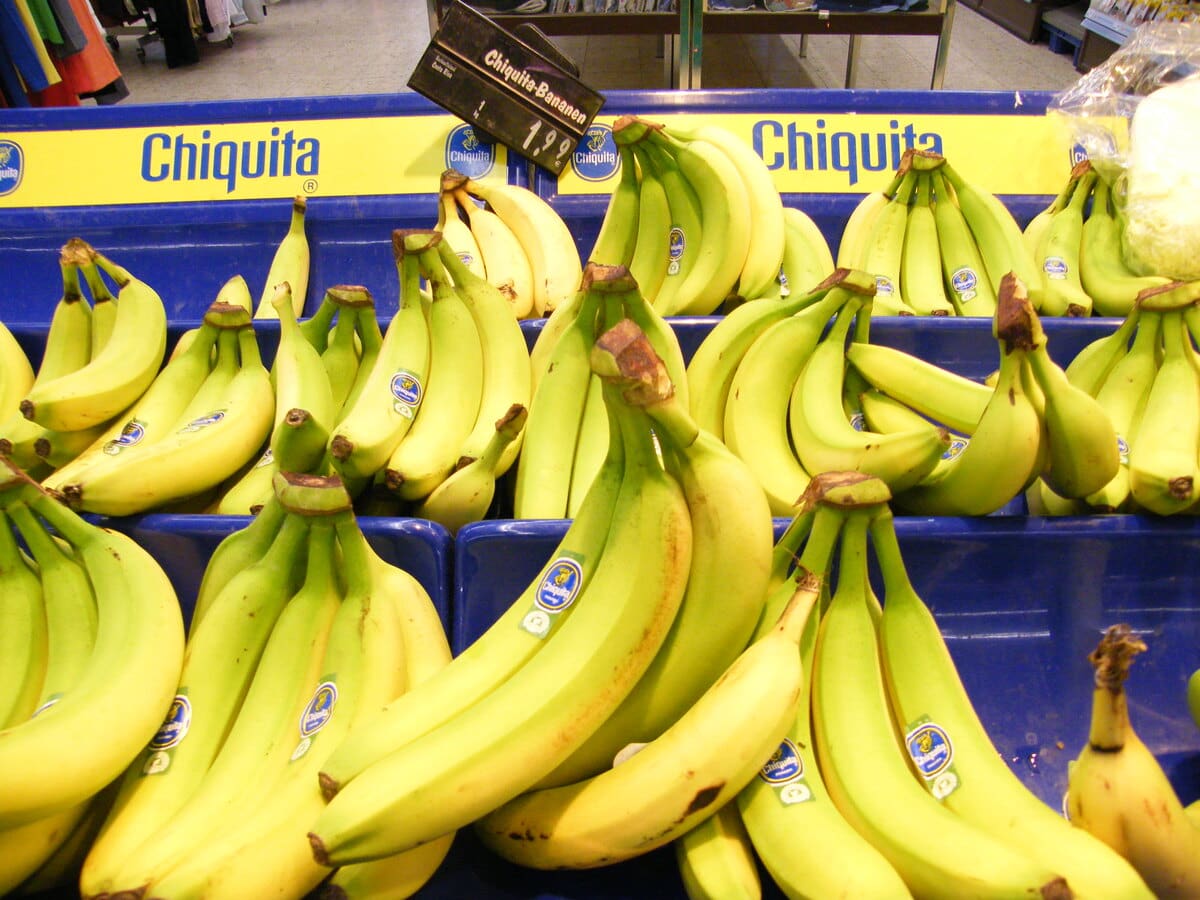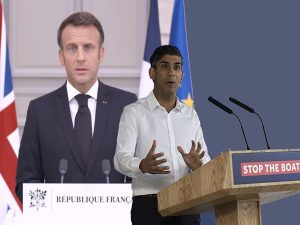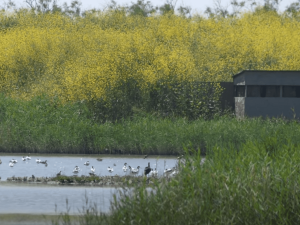In a historic first, an American jury has held a major US corporation liable for complicity in serious human rights abuses abroad. Specifically, the case has held banana giant Chiquita Brands International accountable for financing a brutal paramilitary death squad in Colombia.
Chiquita in Colombia
Between 1997 and 2004, Chiquita financed the United Self-Defense Forces of Colombia (AUC) to the tune of US $1.7m. The AUC was a coalition of right-wing death squads. The group of over 30,000 soldiers operated throughout two-thirds of the country, and manufactured war to prop up a series of illegal business activities. Primarily, the AUC ran what was then the largest drug trafficking cartel in the world. It also engaged in arms sales, human trafficking, and money laundering.
To seize territorial control over drug crops, the AUC carried out widespread massacres, displacement, and targeted assassinations.
As a result, Chiquita’s financing contributed to untold suffering and loss in the Colombian regions of Urabá and Magdalena, including the brutal murders of innocent civilians.
In 2007 the US Department of Justice held an inquiry into its illicit activities funding the US-designated terrorist group. At the time, the banana giant pleaded guilty to charges before a US district court. While the court issued a US $25m fine, Chiquita did not compensate the families of loved ones that the AUC had murdered.
Given this, families of AUC victims, with nonprofit legal group EarthRights International, filed a case against Chiquita. Now, 17 years on some have finally obtained justice. On the 10 June, a US jury in Florida ruled in favour of the families of nine victims of the AUC.
On the successful court ruling, the family plaintiffs said that:
It’s a triumph of a process that has been going on for almost 17 years, for all of us who have suffered so much during these years. There’s a debate about justice and reparation; we’ve been fighting since 2007. We’re not in this process because we want to be; it was Chiquita, with its actions, that dragged us into it. We have a responsibility to our families, and we must fight for them
Chiquita’s bloody history in bananas
While it is a momentous victory for these families, the case also lays bare the uphill battle for human rights against imperial capitalism.
For one, not only did this fight take 17 years, but hundreds more families are still awaiting justice. Predictably, over the course of the litigation, it has sought to evade accountability.
What’s more, the case illustrates how corporations change their faces, but not their violent, colonial core.
Specifically, Chiquita is the rebrand of United Fruit Company (UFVo). Notoriously, this is the corporation that conspired with then US president Eisenhower and the CIA to instigate a violent coup in Guatemala.
Notably, in 1952, democratically elected Guatemalan president Jacobo Arbenz passed a decree to claw back land from large land owners. In particular, he planned to divide this up between Guatemala’s landless citizens. Naturally, this would eat into many acres of UFCo’s landholdings – and as a result, its major profits.
However, US secretary of state John Foster Dulles and CIA director Allen Dulles organised an armed overthrow of Arbenz’s government. The US installed Guatemalan colonel Carlos Castillo as its new president. Unsurprisingly, the Dulles brothers had vested interests in UFCo, as former partners to the company’s main law firm. Following this, as Juan Gonzalez described in ‘Harvest of Empire’:
Despite the violent and illegal manner by which Castillo’s government came to power, Washington promptly recognized it and showered it with foreign aid. Castillo lost no time in repaying his sponsors. He quickly outlawed more than five hundred trade unions and returned more than 1.5 million acres to United Fruit and the country’s other big landowners. Guatemala’s brief experiment with democracy was over. For the next four decades, its people suffered from government terror without equal in the modern history of Latin America.
In other words, this is the colonial history in which Chiquita has its roots.
A “powerful message”
Responding to the ruling, EarthRights International general counsel Marco Simons said:
This verdict sends a powerful message to corporations everywhere: profiting from human rights abuses will not go unpunished. These families, victimized by armed groups and corporations, asserted their power and prevailed in the judicial process
From the US political elite’s 1954 coup in Guatemala, to a US jury’s damning ruling in 2024, the case is a small step forward for human rights. However, it also shows that 70 years on, it’s the same corporate colonial actors at work tyrannising communities in the Global South for financial gain.
Feature image via UggBoy UggGirl/Wikimedia, resized to 1200 by 900, licensed under CC BY 2.0




